Test drive: 2023 Toyota bZ4X FWD goes long, but comes up short
Toyota had a rough start with the launch of its first mass-produced electric vehicle. The vaunted leader in hybrids and efficient gas and motor powertrains dawdled on getting the 2023 Toyota bZ4X to market, trailing most other brands’ electric crossovers except for the Nissan Ariya.
Mass-produced might be a stretch—at least on Toyota terms. The bZ4X was engineered with Subaru and shares much with the 2023 Subaru Solterra, and Toyota was bearish enough about its first EV to cap production at 7,000 units. And once it went on sale mid-2022, it was recalled for its wheels falling off and the brand offered to buy back the car from owners.
The base, single-motor model doesn’t clear the way for Toyota’s nascent bZ lineup of electric vehicles. It’s a conservative take on how to shift consumers from gas to electric, and that makes sense, but the bZ4X with front-wheel drive reminded me of the first generation of compliance cars limited to California and other ZEV states. It feels perfunctory, if not grudging, as if customers and the market demanded it, so here. It’s a disappointment from a brand that made hybrids cool with the odd duck Toyota Prius, and wowed us again with the RAV4 Prime plug-in hybrid, the quickest, most powerful, and best RAV4—if not best PHEV crossover—available.
Even if it feels as if Toyota is following instead of leading in electric vehicles, it nails one crucial aspect with the 2023 bZ4X FWD XLE: efficiency. And it’s a relatively strong value.
Those are two crucial components for shoppers. Here’s where else it hits and misses after a weeklong test drive.
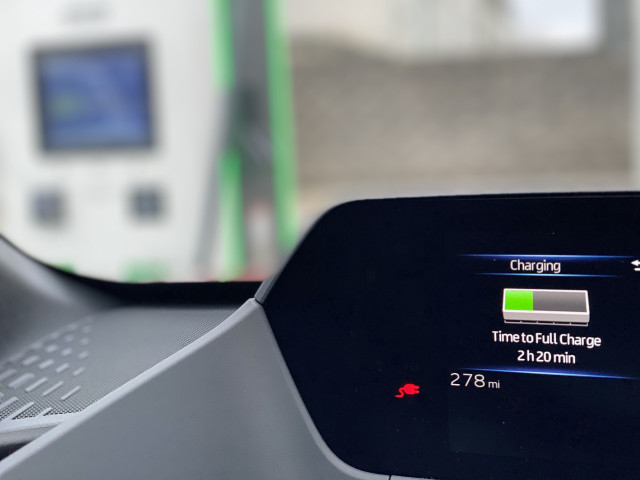
2023 Toyota bZ4X FWD XLE
Hit: Efficient
The EPA rates the 2023 bZ4X at 119 MPGe, and that quixotic number translates to a more practical 3.6 miles per kwh, putting the bZ4X FWD at the top of the electric crossover class in terms of efficiency. It matches the 2023 Tesla Model Y crossover in miles traveled per kwh, and comes up just short of the front-running Tesla Model 3 sedan.
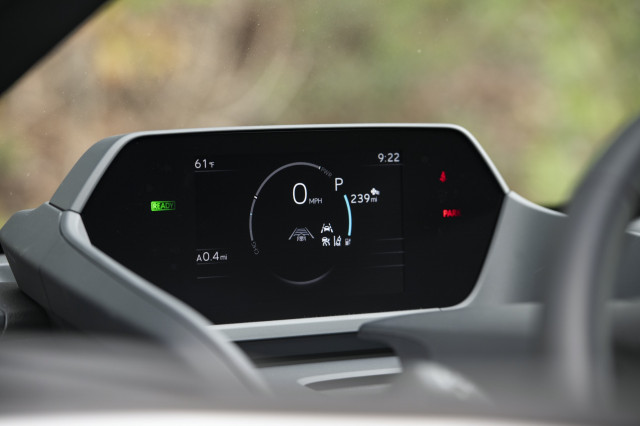
2023 Toyota bZ4X XLE FWD
Miss: Mileage range estimate
Unlike other electric vehicles, the Toyota bZ4X shows only the mileage range estimate in the cluster, not a more accurate battery percentage charge. That can only be had through the app. It led to some wacky readouts that far exceeded the EPA-estimated 252-mile max range. Turning on the heat in freezing weather resulted in a mileage estimate drop of 50 to 70 miles, or about 30% on average. Most gas cars show how much fuel is left in the tank, in addition to an estimated range; electric cars should show percentages.
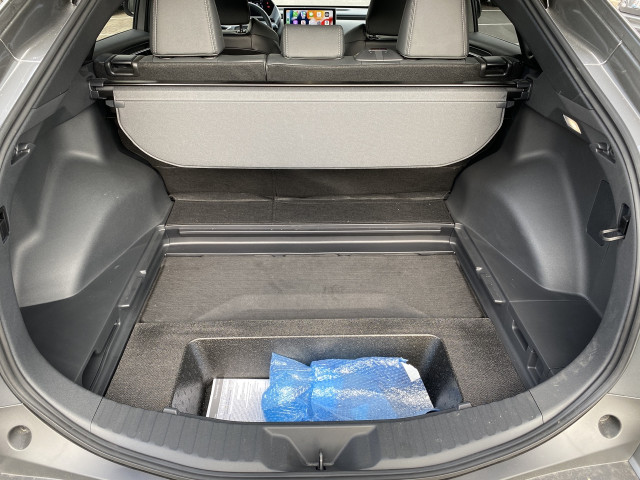
2023 Toyota BZ4X
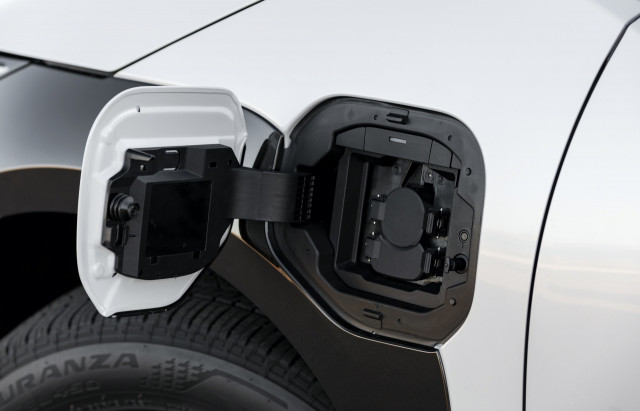
2023 Toyota bZ4X XLE FWD
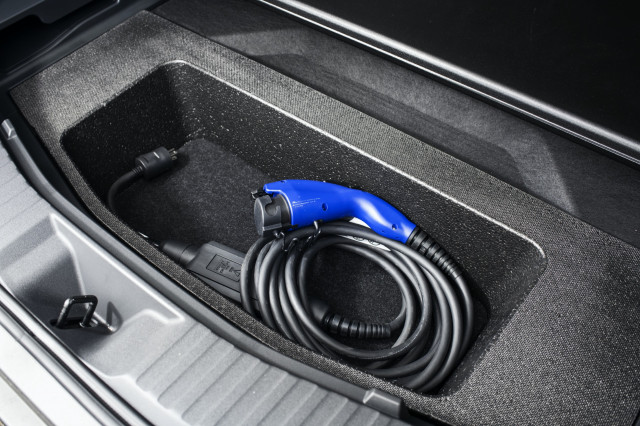
2023 Toyota bZ4X XLE FWD
Hit: 120-volt charging
On a 240-volt outlet rated at 32 amps, the bZ4X charges to 100% in about 9.5 hours. That’s about average for most new EVs in this class. I plugged into a 120-volt outlet, and was pleased with how much range it would recoup overnight. It’s hard to say how much the battery charged because of the mileage readout and due to the freezing temperatures outside my garage, but it consistently exceeded Toyota’s charge rate estimate of four miles an hour.
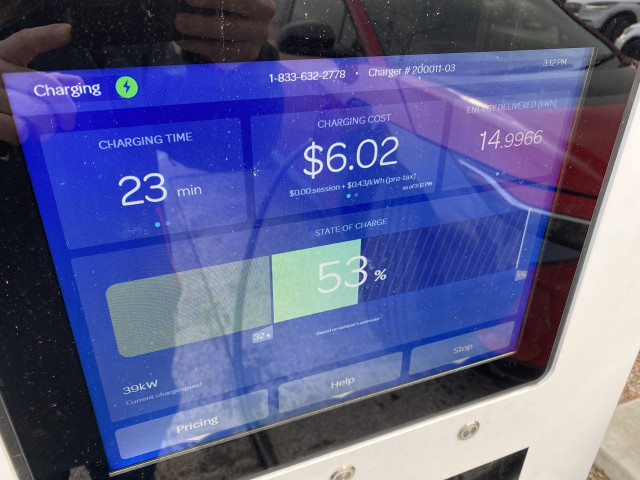
2023 Toyota bZ4X FWD XLE

2023 Toyota bZ4X FWD XLE
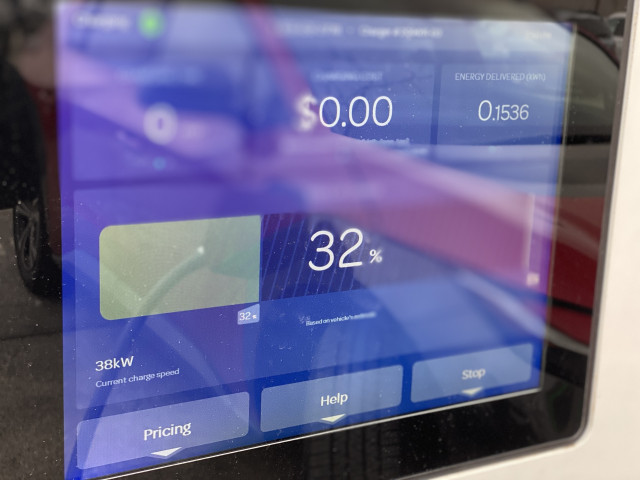
2023 Toyota bZ4X FWD XLE
Miss: DC fast charging
The 71.4-kwh battery pack in the front-wheel-drive model is rated to accept up to 150 kw of juice from a DC fast charger. On my two stops at an Electrify America charge station, it maxed out at just 39 kw, and it took 23 minutes to charge the battery from 32% to 52%. The rates and effectiveness of public fast-charging varies widely, and cold temps don’t help, but the bZ4X is one of the slowest EVs at this price to DC fast-charge. Toyota estimates three miles of range per minute of DC fast charging, so going from low to 80% takes about an hour. Toyota has a partnership with EVgo for one free year of charging. I didn’t have the opportunity to test EVgo’s network, and I wonder if it would charge on its hardware at a higher rate.
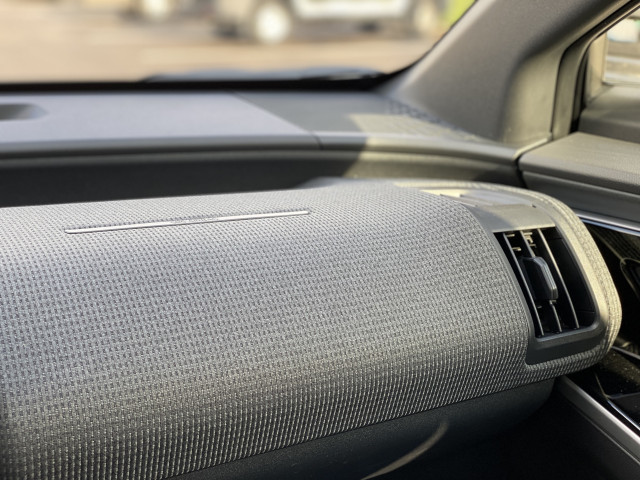
2023 Toyota BZ4X
Miss: The dash
From the carpet-like material covering the rounded hump to the recessed instrument cluster, the dash is a mess of parts and concepts, like a rough draft before the editing process. The cluster and its tiny icons are pushed to the windshield, so it stays in a sightline with the road for safety. But the icons are too small and no matter the position of the steering wheel, it blocks the display.
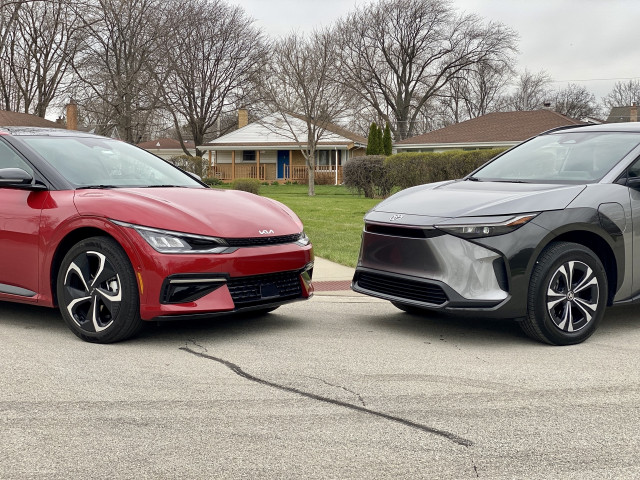
2022 Kia EV6, red, and 2023 Toyota BZ4X, silver
Hit: Relative value
Toyota positions the 2023 bZ4X FWD as an entry-level, affordable electric crossover. At $43,125, including a $1,215 destination fee, it’s at least $10,000 more than the small and older Nissan Leaf and Chevy Bolt hatchbacks, but it’s about $2,000 less than the Volkswagen ID.4 Pro. But the ID.4 Pro has a larger 82-kwh battery pack and 275 miles of estimated range. Additionally, for 2023, Volkswagen introduced the $40,000 ID.4 Standard with a 62-kwh pack and a 209-mile range.
There are other consolations to making the bZ4X a transitional bridge from gas to electric. It only has one regen brake setting, and no one-pedal drive. It’s not quick like other EVs but it’s quiet and roomy with a spacious back seat. It’s not all bad, but the 2023 Toyota bZ4X doesn’t match the competition, except by leading in efficiency. That’s promising for what’s to come.
_______________________________________
2023 Toyota bZ4X FWD XLE
Base price: $43,215, including a $1,215 destination fee
Price as tested: $44,409
Drivetrain: 201-hp single motor in front-wheel drive with a 71.4-kwh battery pack
EPA efficiency: 252 miles of range, 119 MPGe combined, 3.6 miles per kwh
The hits: Efficiency, relative value, 120-volt charge times
The misses: Long DC fast-charge times, goofy dash, uninspired

